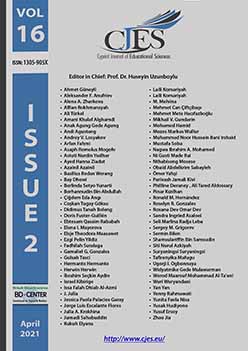Students’ entrepreneurial behaviour – An eight-construct scale validation: A scale adaptation study
Students’ entrepreneurial behaviour – An eight-construct scale validation: A scale adaptation study
Author(s): Mustafa Soba, Ezgi Pelin Yildiz, Yusuf ErsoySubject(s): Education, Business Economy / Management, School education
Published by: Birlesik Dunya Yenilik Arastirma ve Yayincilik Merkezi
Keywords: Entrepreneurship behaviour; undergraduate students; scale adaptation; validity–reliability;
Summary/Abstract: Entrepreneurship, especially among university students, measuring perception/tendency has been very popular in recent years due to reasons such as the importance of the subject, research applicability, reaching the target audience and relatively low research costs. In this context, it emphasises that the willingness, determination and predisposition of young people who will enter the business life to make a new venture and do their own business and their career planning are also important for entrepreneurial tendencies. In the context of this study, an adaptation study of the relevant scale developed by Schmidt Bohnenberger, Panizzon, Marcon, Toivonen and Lampinen into Turkish was carried out in order to determine undergraduate students’ entrepreneurial behaviour. The validity and reliability studies of the scale were carried out with the participation of 185 undergraduate students studying in different departments. Exploratory factor analysis was used to serve structure validity. At the end of the study, a seven-dimensional scale consisting of 40 items explaining 89.62% of the total variance was obtained. The internal consistency coefficient of the scale calculated with Cronbach’s alpha was 0.95. As a result, it contributed to the field by introducing a scale with proven reliability and validity.
Journal: Kıbrıslı Eğitim Bilimleri Dergisi
- Issue Year: 16/2021
- Issue No: 2
- Page Range: 888-901
- Page Count: 14
- Language: English

